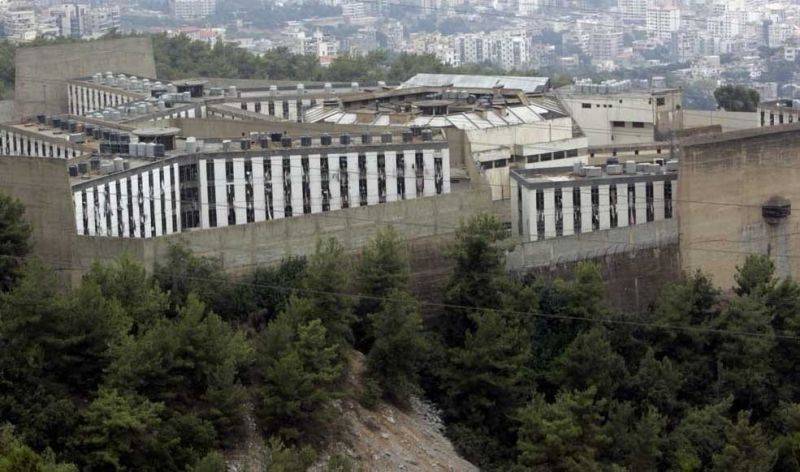
The CPT described Roumieh prison, the country’s main penitentiary, as “far from acceptable.” (Credit: Marwan Assaf)
BEIRUT — “Lebanese judicial authorities still fail to investigate serious torture allegations made by victims,” Lebanon’s Committee for the Prevention of Torture wrote in a report made public on Thursday.
Here’s what we know:
• The CPT’s findings are based on five visits to civil and military prisons and detention centers. It also visited and conducted interviews in two other places where people are or may be deprived of their freedom, namely a temporary shelter established by the Philippine Embassy in the context of the COVID-19 pandemic and the RAMCO, a Lebanese construction, facility, and waste management company, premises.
• The CPT described Roumieh prison, the country’s main penitentiary, as “far from acceptable.” Among the issues it identified at the prison are overcrowding — it houses around 3,250 inmates whereas it was designed to hold only 2,000 — poor health conditions including a lack of adequate medical care, “inedible” food, “rats found in the [block B] water tanks” and the overpractice of solitary confinement. In November 2021, a video was circulated on social media networks of Roumieh inmates self-mutilating to demand improvements to their conditions.
• Visits to detention centers, including those of the Justice Palace in Beirut and two detention centers under the authority of the General Directorate of State Security and the Presidency of the Council of Ministers, showed that the locations were not properly designed to hold inmates.
• The CPT called for “the prompt closure” of the detention center at the Justice Palace in Beirut, where living conditions were described as “horrific.” The CPT noted “severe overcrowding” where “an average of ten to fifteen people are obliged to stay in one small cell, without taking into account the type and seriousness of the committed offense,” along with “high humidity, lack of heating or cooling systems, and insufficient sunlight.” The report notes that “there are people who have not been exposed to sunlight for more than fifteen months … causing diseases to prisoners such as respiratory, pulmonary and dermatological infections … not to mention violation of proper personal hygiene rights of prisoners.”
• The committee also documented abuses against migrant workers, including “delay or non-payment of wages, forced confinement, refusal to grant any days off, as well as verbal and physical abuse,” from which they concluded that “dismantling the Kafala system on an urgent basis is the only structural decision that will ensure the physical, mental, and financial safety of all migrant workers in Lebanon.”
• On March 14, a rights group published a report documenting abuses against detained refugees.
• The CPT report recommends that “allegations of torture [be] investigated by a civil investigative judge not by security agencies, and to have the claims of torture investigated through a fair trial in a competent civil, and not military, court,” highlighting that “an investigation by security agencies into actions committed by their own officers is neither independent nor impartial.”
• The CPT also recommends amendments to current anti-torture legislation “to criminalize inhuman or degrading treatment and/or punishment, and to explicitly state that the crime of torture should not be subject to a statute of limitation, and to provide sanctions for cruel, inhuman or degrading treatment or punishment.”
• The Committee for the Prevention of Torture is formed from members of the National Human Rights Commission to deal with with the prevention of torture, in accordance with the Optional Protocol to the Convention against Torture. Five members were appointed in 2019; however, only three members were active and conducted their work on a voluntary basis. The CPT has complained of a lack of resources and funding noting that “the Lebanese government failed to take serious, swift and effective actions allowing the NHRC-CPT to start its mission with the needed personnel and adequate funds.”